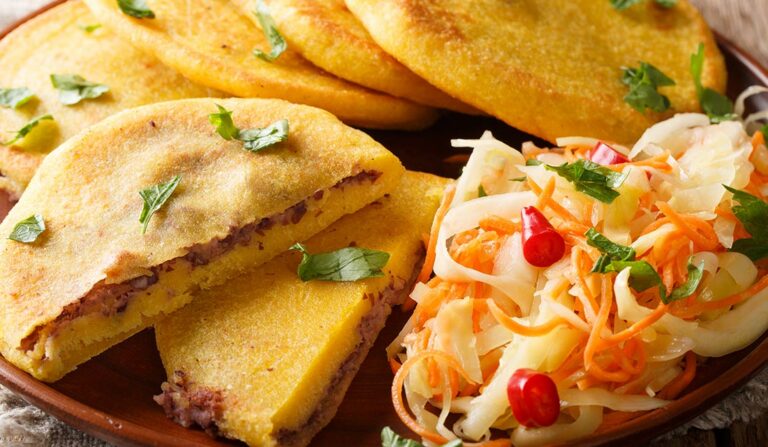Introduction: Street Food in El Salvador
Street food is an essential part of El Salvador’s food culture, where locals and tourists alike can indulge in a diverse array of delicious and affordable dishes. El Salvador’s street food scene is a vibrant reflection of the country’s rich culinary heritage, shaped by the blending of indigenous and Spanish influences.
A Brief History of Street Food in El Salvador
Street food in El Salvador has a long and diverse history, with some dishes tracing their roots back to pre-Columbian times. Many of the country’s most popular street foods, such as pupusas and tamales, have been staples of Salvadoran cuisine for centuries, while others, like hot dogs and hamburgers, reflect the country’s more recent global influences.
Popular Street Food in El Salvador
Salvadoran street food is a delicious and diverse blend of flavors and ingredients. The most popular street food in El Salvador is the pupusa, a thick corn tortilla filled with cheese, beans, meat, or other savory ingredients. Other popular street foods include tamales (corn dough filled with meat or vegetables and steamed in a banana leaf), yuca frita (crispy fried yucca), and empanadas (deep-fried turnovers filled with meat, cheese, or vegetables).
Where to Find Street Food in El Salvador
Street food is ubiquitous in El Salvador and can be found in markets, food stalls, and street corners throughout the country. In San Salvador, the capital city, street food vendors can be found in busy areas like the historic center and the Mercado Central. Other popular spots for street food include beach towns like La Libertad and El Tunco, where vendors sell fresh seafood and ceviche.
Safety and Health Concerns When Eating Street Food in El Salvador
While street food is a popular and delicious way to experience Salvadoran cuisine, it’s important to take precautions to avoid foodborne illnesses. It’s essential to choose vendors that appear clean and hygienic and to avoid eating raw or undercooked meats or seafood. Additionally, it’s best to stick to cooked foods that are served hot and to avoid dishes that have been sitting out in the sun for extended periods.
Regulations and Licensing for Street Food Vendors in El Salvador
Street food vendors in El Salvador are subject to regulations and licensing requirements, although enforcement can be inconsistent. Vendors are required to register with local health authorities and must comply with health and safety standards, such as using clean water and maintaining proper food storage and preparation practices.
The Economic Importance of Street Food in El Salvador
Street food is a significant economic driver in El Salvador, providing livelihoods for thousands of vendors and contributing to the country’s overall food economy. Many street food vendors operate small, family-owned businesses and rely on their trade to support themselves and their families.
Conclusion: Street Food Culture in El Salvador
El Salvador’s street food culture is an essential part of the country’s food heritage and a vital aspect of daily life for many Salvadorans. From the humble pupusa to more exotic dishes like ceviche and grilled meats, street food vendors offer a diverse array of delicious and affordable dishes that reflect the country’s cultural and culinary heritage. While visitors to El Salvador should take precautions when eating street food, they should also embrace the opportunity to explore this vibrant and delicious aspect of Salvadoran culture.

